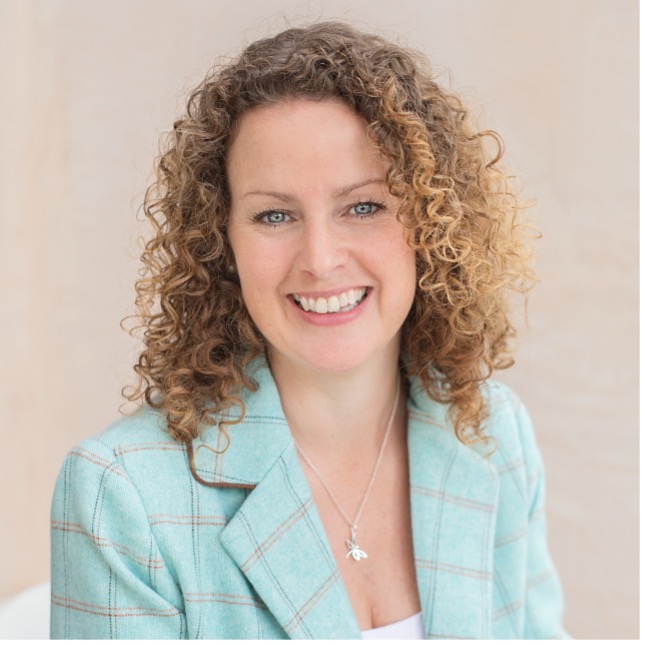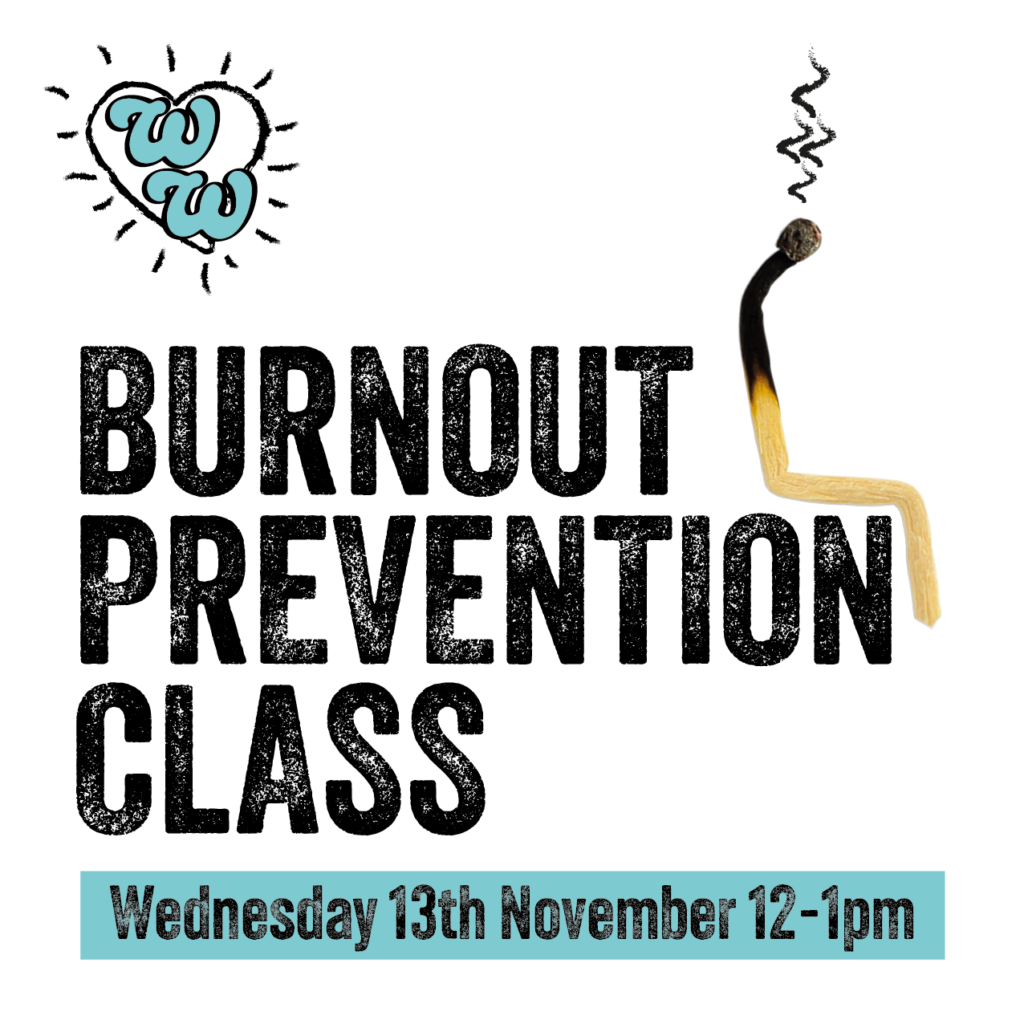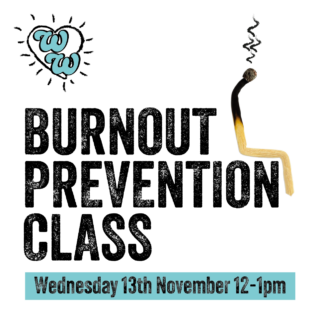This event is part of our Wellness Wednesday series. The City Law School had the privilege to welcome Donna Smith, who is a former Lawyer and burnout survivor herself, for an insightful Burn ‘Bright’ Masterclass on the afternoon of the 12th November.
About Donna:

Donna Smith is a burnout coach whose expertise is to help lawyers at all levels, that is, from law students to senior partners of law firms, to prioritise their wellbeing and development. Her particular passion is working with students and junior lawyers because we are the next generation of lawyers. We need to be at our best, love the law and love what we do, but in a healthy way for us.
Ms Smith practised law for several years prior, so she can relate to the struggles that we may face in the legal profession and understands our reality.
Objective of the Masterclass
You have come to the right place if you have any questions about the practical method as to how to deal with the feeling of having too much work to do but running out of time to do it; and how to take back control of your day, your week, your life before it is too late that you burn out. The key takeaway from this session is:
‘…whether you burn out or burn bright, it is a personal choice, and it is all up to you…’

What is Burnout?
Before I dive into its definition, here are a few questions that you can ask yourself:
Question 1 – Have you been feeling overwhelmed recently?;
Question 2 – Have you been feeling emotionally drained recently?; and
Question 3 – Have you had a sense of just really being unable to keep up with the constant demands that keep coming your way?
If your answers to these three questions are yes’s, you should probably read on for the 6 principles that save you from the burnout. Ms Smith described burnout as:
‘a state of emotional, physical and mental exhaustion caused by excessive and prolonged stress. It occurs when you feel overwhelmed, emotionally drained and unable to meet constant demands’.
Burnout is a topic of frequent discussion, especially in the legal profession. A lot of people will say something like, ‘it’s part of being a lawyer so you have to deal with it’. However, does it mean we have to accept it? No, absolutely not! Even if we are under pressure, we are still capable of prioritising our wellbeing and still be successful in our legal career.
We can break the burnout cycle and stay at our best more often, by focusing what is important to us every day. We need a consistent way to prioritise our wellbeing so we are at our best, more of the time. In the legal profession, everything is highly competitive and we are always reminded that we must work hard to achieve this and that. However, this is the reality and it is completely all right.
The 6 Fundamental Principles to Burn ‘BRIGHT’
During the session, Ms Smith shared six very useful principles on how we can break the burnout cycle, and that the more consistently we apply them, the brighter we will burn. These principles form the solid foundation of Ms Smith’s Burnout Programme, which is her proven process she uses to take her clients from burnout to burn bright.
(1) Begin With the End Of Mind
This principle comes from the book, the Seven Habits of Highly Effective People by Stephen Covey. It is very important for us to picture ourselves burning bright in the legal profession, and keep reminding ourselves of that vision every day. As how the law of attraction operates, we get more what we are attracted to. The more we place attention on where we want to get to, the more we will start noticing the opportunities, resources and the people that can help us get to places we want to be, and so on.
(2) Knowing Yourself Is the Beginning Of Your Transformation
When we get overwhelmed, we are likely to feel everything is broken and falling apart, which is why we get stuck in burnout. Logically, there is a misalignment that causes a negative rippling effect that makes everything feels broken. How can we fix the misalignment then? Very simple, create a positive effect by taking some steps to bring it back into alignment. The positive effect is where our transformation into a person who has chosen to burn bright rather than out, begins.
(3) Choose Your Deposits and Withdrawals Wisely

This is Ms Smith’s favourite principle. She said we all have a ‘burn bright bank account’, which is just like a regular bank account where deposits and withdrawals take place. In our burn bright bank account it is all about the deposits and withdrawals of energy, rather than money. The concept of burnout is similar to overdraft. Deposits of energy are the things that put a smile on our face and make us feel good. They do not necessarily have to be big things.
Small things like having a hot chocolate in hand or a walk with our loved ones can also be a deposit of energy into our account. As for the withdrawals, which are clearly the opposites, they are the things that deflate and drain us, such as receiving very little recognition for the efforts we have put into our assignments and the quarrels between us and our best friend. The more energy we deposit into our accounts, the brighter we burn, because they are around us everywhere.
(4) Be Proactive in What You Focus On
When we are in a burnout, we will have a feeling of being out of control. Ms Smith suggested a method to get rid of this unpleasant feeling. We can write down all the things that are on our mind, and categorise them into groups. Think about: is this given? Is this something I can influence? Is this something I have control over? Focus on things that we ‘can’ control, rather than being overwhelmed by things that we cannot.
(5) ‘NO’ Is A Complete Sentence
This is not about working hard enough, or stepping back from what we have to do in order to shine in the legal profession. In order to burn bright, we have to prioritise our wellbeing, which is not easy especially to those of us who are reading law. We feel it’s rude to reject others, so we would explain why and apologise when we say no to them. But there’s one exception, ourselves. We are good at saying no to ourselves to an extent that we are not even aware of it. Law students have heavy reading to do, dealing with tight deadlines, drafting legal documents, and whatnot. We are not lenient to ourselves and saying no to ourselves becomes a common practice. By doing so, we are actually saying to ourselves that we and our mental health are not important at all. Be kind to ourselves and say no when necessary.
(6) Adopt The ‘Magic Penny’ Approach

This is the final principle out of the six. It comes from the book, the Compound Effect by Darren Hardy. Ms Smith led us to a scenario: imagine we have £3M in cash and a penny, which one would we choose? Before making our choice, she had introduced us the ground rules that, if we choose the £3M in cash we cannot do anything with it for 31 days; we cannot count it and spend it. Same rule applies for the penny.
Now the penny is magic because its value doubles every single day so whatever the value is at the end of the 31 days, that is the value we get. And surprisingly, if we really did have a magic penny that had a value that doubled every single day for 31 days, the final value would be substantially more than £3M. By way of explanation, saying yes to ourselves is the magic penny moment, and the more magic penny moments, the brighter we burn!
Conclusion

Now that we are getting familiar with the Six Principles, let’s try them out and burn bright together! We once again extend our gratitude to Ms Smith for her time and such insightful session. Want to know more about the burn bright methods and Ms Smith? Scan the barcode for more information and stay tuned for the interview!
Many thanks to Chloe Yuet Ng for this detailed and engaging report on the Advocacy event. Chloe is a current Bar Vocational Studies (LLM) student at the City Law School, with a special interest in Family Law. She enjoys meeting new people and spreading positive energy!

